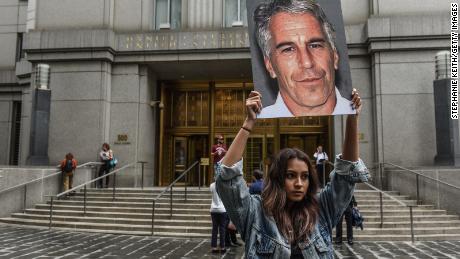(CNN)They say justice delayed is justice denied, but a provision of a New York state law that goes into effect Wednesday will give child sexual abuse victims a chance to defy that conventional wisdom.
The Child Victims Act, signed into law on February 14, expands the ways that those who suffered sexual abuse as children can use the legal system to address the damage.
In particular, the law specifically said that six months after its passage, there would be a one-year period when any adult survivors of child sexual abuse could sue an abuser or a negligent institution, no matter how long ago the abuse took place.
That one-year "window of justice," as Child USA CEO Marci Ann Hamilton called it, starts Wednesday.
The idea behind the law is that many victims of child sexual abuse keep it a secret for years, well beyond the previous statute of limitations, out of shame and fear. This law gives them a chance to "reclaim their dignity," said Michael Polenberg of Safe Horizon, a victim assistance non-profit that worked to pass the law.
"For survivors who understand what has happened to them and know in their hearts what happened to them, they get to name that person in court," he said.
The one-year reprieve could create new opportunities for lawsuits against people or institutions implicated in child sex abuse scandals, such as the Catholic Church, the Boy Scouts, or the estate of the late Jeffrey Epstein.
What the law changes
The one-year reprieve for civil lawsuits applies to accusations of child sexual abuse, including those that had been previously dismissed for being filed too late or for those who failed to file a notice of claim in time.
"It's a way for victims to take matters into their own hands," said attorney Carrie Goldberg said. "It gives them a path to justice."
New York Gov. Andrew Cuomo signed it into law in February and praised the abuse survivors who came forward to make change for others.
"This bill brings justice to people who were abused, and rights the wrongs that went unacknowledged and unpunished for too long," he said. "By signing this bill, we are saying nobody is above the law, that the cloak of authority is not impenetrable, and that if you violate the law, we will find out and you will be punished and justice will be done."
The law was signed after more than a decade of opposition from the Catholic Church in New York, Cuomo said. He added that the law's passage was "society's way of saying we are sorry."
"We are sorry for what happened to you," he said. "We are sorry that it took us so long to acknowledge what happened to you. We are sorry that justice took so long. We are sorry to the other victims who, in the interim, were also violated because society was slow in acting."
In addition to the one-year window, the act made several other changes expanding child victims' ability to pursue justice in their cases through the legal system.
The new law allows survivors of child sex abuse to file a civil suit until their 55th birthday, an increase from the previous age limit of 23. And it also extends the statute of limitations for child sex abuse charges, up to 28 for certain felony charges and up to 25 for misdemeanor charges.
The one-year window will allow for lawsuits against Epstein, the disgraced financier accused of abusing and harassing underage girls at his homes in New York and Florida. Despite Epstein's death on Saturday from an apparent suicide, the civil lawsuits can continue against the multimillionaire's estate, legal experts said.
One such case will come from Jennifer Araoz, who has said Epstein raped her when she was 15 years old. In late July, legal papers were delivered to Epstein in jail that said Araoz planned to file a lawsuit when the one-year grace period begins.
A draft version of the lawsuit also accused three unidentified women called the "Recruiter," the "Secretary" and the "Maid," who she alleges facilitated the abuse.
"Jennifer endured unspeakable abuse by Jeffrey Epstein and his enablers, who robbed her of a piece of her childhood," Araoz's attorney Daniel Kaiser said in a statement at the time. "She brought this action to hold those responsible accountable and deliver a simple message: she's not afraid anymore."







